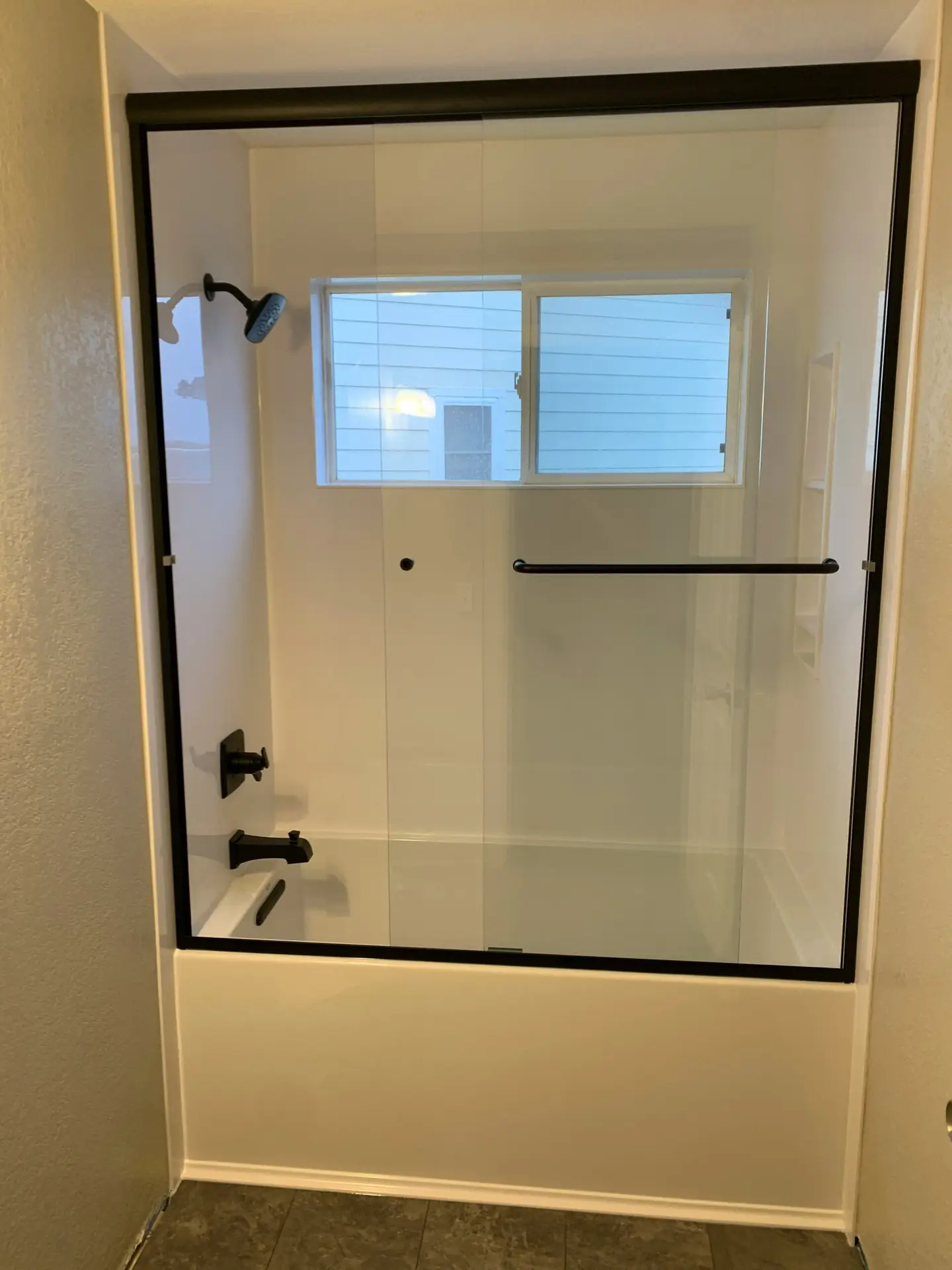Introduction to Home Renovations
Home renovations refer to the process of improving or updating an existing structure to enhance its functionality, aesthetic appeal, or value. This process can encompass a wide range of activities, from simple cosmetic changes like painting and decorating to extensive structural alterations such as adding a room or completely overhauling the layout. There are numerous benefits associated with renovating a home, including increased market value, improved energy efficiency, and personal satisfaction in creating a space that meets one’s unique needs.
Embarking on a renovation project often stirs a mix of emotions. Homeowners frequently experience excitement as they envision the potential of their space, alongside anxiety and fear of the unknown challenges ahead. These feelings are natural and can be mitigated through careful planning. It is essential for individuals to take the time to map out their renovation priorities, budget, and timeline. By understanding the common renovation mistakes that many homeowners encounter, individuals can better prepare themselves for the journey.
One critical step is to consider hiring professionals who specialize in renovation projects. Many avoid seeking help due to misconceptions about cost; however, experts can guide homeowners in making informed decisions, ultimately saving time and money. Professionals bring invaluable knowledge and experience, which can help avert pitfalls that could arise during the renovation process. Additionally, they can ensure compliance with building codes and regulations, further assuaging the inherent stresses tied to such endeavors.
In conclusion, understanding the nuances of home renovations can turn what may seem like an overwhelming task into a fulfilling experience. By acknowledging the potential challenges and actively planning to tackle them, homeowners will not only enhance their living space but also enjoy the transformation along the way.
Mistake #1: Underestimating the Budget
One of the most prevalent renovation mistakes that homeowners encounter is the underestimation of their renovation budget. Many individuals embark on home improvement projects with an optimistic view of costs, often neglecting to account for various essential factors that can significantly increase expenses. As a result, it is not uncommon for homeowners to find themselves running out of funds midway through a project, leading to incomplete renovations or stalled work.
To avoid this pitfall, it is crucial to create a detailed and realistic budget before commencing any renovation activities. Start by researching the costs associated with materials, labor, and any additional services you may require. It can be beneficial to obtain quotes from multiple suppliers and contractors, allowing you to compare and understand the typical expenses involved. This investigation will provide a clearer picture of the financial commitment necessary for your renovation project.
In addition to estimating initial costs, it is essential to incorporate a contingency fund into your budget. A common guideline is to allocate an additional 10% to 20% of your total budget for unforeseen expenses. This prepares homeowners for unexpected issues that may arise during the renovation process, such as discovering hidden structural problems or needing to buy more materials than originally anticipated. By planning for these contingencies, homeowners can reduce financial stress and ensure the project stays on track.
Furthermore, when considering how to hire professionals, ensure that you verify their credentials, experience, and references. Engaging qualified contractors may come at a higher initial cost, but it can save you money in the long run by avoiding costly renovation mistakes. Performing due diligence in hiring can enhance the efficiency of your project while keeping it within budget.
Mistake #2: Skipping the Planning Stage
Many homeowners embark on renovation projects with great enthusiasm, often overlooking or underestimating the importance of meticulous planning. Rushing into renovations without a structured approach can lead to a multitude of problems, ranging from financial overspending to project delays. A comprehensive plan acts as a roadmap, guiding the renovation process and helping homeowners visualize their desired outcomes.
Creating a detailed renovation plan requires several key components. Firstly, having a clear vision is essential. This involves identifying the specific goals of the renovation, whether it is to increase property value, improve functionality, or enhance aesthetic appeal. Once the objectives are established, it is crucial to outline the scope of work, including the specific areas that will be renovated and the anticipated changes. Prioritizing tasks helps organize the renovation into manageable segments, minimizing the likelihood of overwhelming complexity.
Additionally, time is a critical factor in any renovation. Setting realistic timelines ensures that projects do not drag on indefinitely, which can lead to frustration and increased costs. Renovation timelines should include phases for planning, execution, and potential contingencies for unexpected issues. It is advisable to factor in a buffer period to accommodate for delays that may arise during the renovation process.
Moreover, common planning oversights can often be attributed to the failure to consult professionals. When it comes to major renovations, hiring qualified experts is invaluable. Professionals bring experience and insight that can prevent costly mistakes. They can help homeowners develop comprehensive plans, adhere to local regulations, and create realistic budgets. Ultimately, investing time in careful planning is fundamental in ensuring a successful renovation and mitigating avoidable renovation mistakes.
Mistake #3: Ignoring Structural Issues
One of the most critical renovation mistakes homeowners can make is ignoring existing structural issues, such as plumbing, electrical, or foundational problems. Overlooking these elements may seem convenient during the planning stages, but it often leads to more significant, costlier complications down the line. Whether a home is a century-old property or a newer build, structural integrity should always be a priority in any renovation project.
To prevent these renovation mistakes, undertake a comprehensive inspection of your home prior to initiating any updates. This should include checking for signs of water damage, checking electrical systems, and evaluating the foundation for cracks or shifting. Identifying these issues early allows homeowners to make informed decisions about renovations and ensures that no vital elements are overlooked. Ignoring these problems can jeopardize not only the renovation project but also the overall safety and livability of the home.
When addressing structural concerns, it is vital to hire professionals who can provide the necessary expertise. This includes licensed contractors, electricians, and plumbers who can assess and rectify issues accurately. Trying to manage these problems on your own is one of the renovation mistakes often made by inexperienced homeowners. Professionals bring a wealth of knowledge and experience, ensuring that repairs are executed to code and with appropriate safety measures in place. Furthermore, professional insight can help homeowners prioritize which issues need immediate attention and which can be addressed later.
In conclusion, acknowledging and addressing structural issues in a home is essential to a successful renovation. By conducting thorough inspections and hiring qualified professionals to handle these concerns, homeowners can avoid common renovation mistakes and achieve a stable and functional living environment.
Mistake #4: DIY Overreach
In the realm of home renovation, one of the prevalent mistakes homeowners often make is attempting projects that exceed their skill levels. The allure of DIY renovations can be strong, as many individuals are eager to save money or take pride in their handiwork. However, when the scope of the project surpasses one’s expertise, the risks involved significantly increase. Poor workmanship resulting from DIY overreach can lead to substandard results, safety hazards, and ultimately, costly repairs.
Firstly, it is important to understand the types of projects that are suitable for DIY enthusiasts. Simple tasks such as painting walls, installing shelves, or replacing fixtures can often be completed with minimal experience and basic tools. However, more complex renovations—such as electrical work, plumbing installations, or structural modifications—should be left to qualified professionals. These tasks not only necessitate specialized knowledge but also require compliance with local codes and regulations, which can be daunting for even the most determined DIYers.
When considering how to proceed with home renovations, recognizing your limits is crucial. Before embarking on a project, homeowners should honestly assess their skills and experience levels. Consulting resources or seeking advice from seasoned renovators can provide valuable insights into the feasibility of a DIY approach. Additionally, hiring professionals offers several advantages; they possess the requisite training, experience, and tools to ensure that projects are completed to a high standard. This not only mitigates the risk of mistakes but can also save homeowners time and money in the long run.
In conclusion, while the DIY spirit can enhance the renovation experience, it is essential for homeowners to avoid overreaching beyond their capabilities. By identifying appropriate tasks for DIY and recognizing areas best left to professionals, individuals can ensure a smoother renovation process and more satisfactory outcomes.
Mistake #5: Not Considering Resale Value
When undertaking home renovations, one common mistake homeowners make is failing to consider the resale value of their investments. While personal preferences are certainly important in creating a comfortable and functional space, understanding market trends and potential buyer appeal is equally essential for anyone contemplating significant renovations. Certain renovations might enhance your living experience but may not provide a favorable return on investment when it comes time to sell the property.
For instance, upgrades like high-end kitchens or luxurious bathrooms can be enticing, but if they exceed the neighborhood’s standard, they may not attract buyers nor recoup their costs upon resale. Instead, it is crucial to strike a balance between what homeowners want and what prospective buyers may appreciate. Conducting research on local real estate markets and consulting professionals can provide valuable insights into which renovations are worthwhile and which could be classified as renovation mistakes.
Before diving into a renovation project, consider how specific improvements rank in terms of resale value. Simple updates, such as enhancing curb appeal through landscaping or maintaining fresh paint, often yield much higher returns than extravagant renovations. Moreover, consider engaging real estate agents or home renovation consultants who can guide you through the decision-making process. Their expertise can help identify renovation possibilities that align with market demands, ensuring that you do not inadvertently make costly renovation mistakes.
Ultimately, while fostering a personal touch in your home is commendable, evaluating the long-term implications of your renovations is vital. Think carefully about how each modification might appeal to future buyers and, by doing so, you can make well-informed choices that benefit both your enjoyment during ownership and the home’s resale potential.
Mistake #6: Choosing the Wrong Materials
One of the pivotal renovation mistakes homeowners make is selecting inappropriate or low-quality materials. The repercussions of these choices often manifest as increased maintenance costs and diminished aesthetic appeal over time. Utilizing substandard materials may seem initially cost-effective; however, they are often less durable and fail to withstand the wear and tear of daily life. This will inevitably lead to more frequent repairs or replacements, which can escalate overall renovation expenses beyond anticipated budgets.
To avoid such missteps, it is essential to conduct thorough research on materials before committing to a renovation project. Consider evaluating the longevity, visual appeal, and cost-effectiveness of potential materials. For instance, when choosing flooring, you might compare laminate with hardwood or tile, weighing aspects such as resilience and maintenance needs. Not only should the materials align with the project’s aesthetic vision, but they must also be suitable for the context of your environment, such as humidity levels or exposure to sunlight.
Moreover, seeking advice from professionals can significantly aid in making informed choices. Experienced contractors or designers often have extensive knowledge of materials and can recommend options that balance durability and style without compromising your budget. They can also help you understand the long-term implications of using specific materials, assisting you in avoiding common pitfalls that lead to regret post-renovation. Ultimately, selecting the right materials is not merely about immediate gratification but also ensuring the longevity and performance of your renovations in the years to come.
Mistake #7: Poor Time Management
Time management is a critical aspect of any successful home renovation project. One of the most common renovation mistakes is underestimating the amount of time required to complete tasks, which can lead to frustration, increased costs, and a prolonged disruption of daily life. When embarking on a renovation journey, it is essential to develop a comprehensive timeline that accounts for all phases of the project. This includes planning, purchasing materials, actual construction or renovation work, and final inspections.
To create an effective timeline, begin by breaking down the renovation project into smaller, manageable tasks. Identify the estimated duration for each task and consider potential challenges that may arise. It is advisable to overestimate time frames for each task rather than underestimate, allowing for unexpected delays or complications. For instance, if you anticipate that a particular project will take two weeks, you might consider allocating three weeks to account for unplanned issues.
Another vital strategy is to establish realistic deadlines. Discuss these timelines with all stakeholders involved, including contractors and family members, to agree on a suitable schedule. Effective communication with professionals you hire is key in ensuring that everyone understands the timeline expectations and can work together seamlessly. Additionally, regularly monitor the progress against your timeline to swiftly address any deviations that may require adjustment. Remember that while it is critical to adhere to the timeline, flexibility is also important; some delays may be unavoidable, and having a contingency plan can help manage these circumstances without significant stress.
Ultimately, adopting a disciplined approach to time management will significantly enhance the chances of a successful renovation while minimizing the risks associated with rushed decisions and unforeseen setbacks.
Mistake #8: Not Hiring the Right Professionals
One of the most significant renovation mistakes homeowners can make is failing to hire qualified professionals for their projects. Selecting the right talent is crucial to ensure that the renovation is executed efficiently, safely, and within budget. When faced with the multitude of tasks required during a renovation, it is imperative to rely on experts who possess the necessary skills and experience. Doing so not only enhances the quality of the work but can also save money in the long run.
To start, homeowners should prioritize research when seeking contractors or specialized professionals. Recommendations from friends, family, or even online reviews can provide valuable insights into whom to consider. Utilizing platforms that allow individuals to review contractors’ work and their customer service can be immensely helpful. Websites dedicated to home improvement often feature lists of vetted professionals, allowing homeowners to make informed decisions.
Once a shortlist of potential candidates has been established, it is essential to conduct thorough vetting. This process includes checking references and past project portfolios, which can give insight into the contractor’s workmanship and reliability. Additionally, homeowners should verify that the professionals they are considering are licensed and insured, ensuring they adhere to the code of practice and standards within the industry. Understanding the terms of contracts is equally important. Homeowners should ask for a detailed written estimate, review the payment schedule, and clarify the scope of work. This careful evaluation ensures that expectations are aligned and can prevent misunderstandings later.
In summary, avoiding the mistake of not hiring the right professionals can significantly impact the outcome of any renovation endeavor. By following these guidelines, homeowners can mitigate risks and achieve a successful home transformation. Ultimately, investing time in hiring qualified individuals is a proactive step towards ensuring that renovation projects are completed effectively and efficiently.
Conclusion and Key Takeaways
Home renovations can be a rewarding experience, providing the opportunity to enhance both the aesthetic and functional aspects of a living space. However, embarking on such projects without adequate planning can lead to significant renovation mistakes that may compromise the desired outcomes. To avoid these pitfalls, it is essential for homeowners to conduct thorough research and understand the common errors that can arise during renovations.
Firstly, setting a realistic budget is crucial. Sudden cost overruns are among the most frequent renovation mistakes, often resulting from inadequate budget forecasts or miscalculations. Homeowners should account for unforeseen expenses and prioritize essential renovations. Moreover, allocating financial resources effectively can help ensure that each aspect of the project receives appropriate attention, avoiding situations where funds are depleted before completion.
Secondly, the importance of careful planning cannot be stressed enough. Knowing how to tackle renovations entails understanding design needs, material choices, and appropriate timelines. Spontaneity can lead to mistakes that not only extend project duration but can also inflate costs. It is advisable to create a clear renovation plan that outlines objectives and incorporates input from professionals when necessary.
Finally, hiring professionals when required can significantly reduce the likelihood of common renovation mistakes. Enlisting the expertise of experienced contractors, architects, or interior designers can inject valuable insights into the project and enhance its overall success. These professionals possess the knowledge and skills to navigate potential challenges, ensuring that renovations adhere to building codes and regulations.
Taking proactive steps to avoid these renovation pitfalls will yield a more successful, efficient, and fulfilling home renovation experience. By planning meticulously, budgeting wisely, and considering the value of hiring experts, homeowners can transform their living spaces while steering clear of common renovation mistakes.





